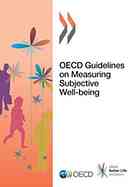

Most ebook files are in PDF format, so you can easily read them using various software such as Foxit Reader or directly on the Google Chrome browser.
Some ebook files are released by publishers in other formats such as .awz, .mobi, .epub, .fb2, etc. You may need to install specific software to read these formats on mobile/PC, such as Calibre.
Please read the tutorial at this link: https://ebookbell.com/faq
We offer FREE conversion to the popular formats you request; however, this may take some time. Therefore, right after payment, please email us, and we will try to provide the service as quickly as possible.
For some exceptional file formats or broken links (if any), please refrain from opening any disputes. Instead, email us first, and we will try to assist within a maximum of 6 hours.
EbookBell Team

5.0
90 reviewsBeing able to measure people's quality of life is fundamental when assessing the progress of societies. There is now widespread acknowledgement that measuring subjective well-being is an essential part of measuring quality of life alongside other social and economic dimensions. As a first step to improving the measures of quality of life, the OECD has produced Guidelines which provide advice on the collection and use of measures of subjective well-being. These Guidelines have been produced as part of the OECD Better Life Initiative, a pioneering project launched in 2011, with the objective to measure society's progress across eleven domains of well-being, ranging from jobs, health and housing, through to civic engagement and the environment. These Guidelines represent the first attempt to provide international recommendations on collecting, publishing, and analysing subjective well-being data. They provide guidance on collecting information on people's evaluations and experiences of life, as well as on collecting "eudaimonic" measures of psychological well-being. The Guidelines also outline why measures of subjective well-being are relevant for monitoring and policy making, and why national statistical agencies have a critical role to play in enhancing the usefulness of existing measures. They identify the best approaches for measuring, in a reliable and consistent way, the various dimensions of subjective well-being, and provide guidance for reporting on such measures. The Guidelines also include a number of prototype survey modules on subjective well-being that national and international agencies can use in their surveys.